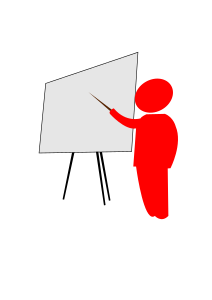Dr Joseph un s Lisala gehn àn d gare.
Joseph et Lisala vont à la gare.
Joseph und Lisala gehen an den Bahnhof.
Joseph and Lisala go to the train station.
Dr Joseph un s Lisala gehn àn d gare.
Joseph et Lisala vont à la gare.
Joseph und Lisala gehen an den Bahnhof.
Joseph and Lisala go to the train station.
Dr Thomas wohnt z'Pàris.
Ar kummt garn uf Milhüüsa fer d Feria.
Thomas habite à Paris.
Il vient volontiers à Mulhouse pour les vacances.
Thomas wohnt in Paris.
Er kommt gern nach Mülhausen für die Ferien.
Thomas lives in Paris.
He likes to come to Mulhouse for the holidays.
- Wìllkumma ìm Elsàss, liawer Thomas!
- Bienvenue en Alsace, cher Thomas !
- Willkommen im Elsass, lieber Thomas!
- Welcome in Alsace, dear Thomas!
- Ìsch d Reis güet ummagànga?
- Le voyage s'est-il bien passé ?
- Ist die Reise gut vorbeigegangen?
- Was the travel okay?
- Ja, merci. Buschur Unkel Joseph un Tànta Lisala!
- Oui, merci. Bonjour oncle Joseph et tante Lisala !
- Ja, danke. Guter Tag Onkel Joseph und Tante Lisala!
- Yes, thanks. Hello Uncle Joseph and Aunt Lisala!
- 's ìsch flott, uns wìder z sah!
- C'est chouette de se revoir !
- Es ist toll, uns wieder zu sehen!
- It's nice to see one another again!
Sa gehn àlla drèi ìns Restaurant.
Ils vont tous les trois au restaurant.
Sie gehen alle drei ins Restaurant.
Both three go to the restaurant.

https://upload.wikimedia.org/wikipedia/commons/f/fb/Tarte_flamb%C3%A9e_alsacienne_514471722.jpg
Sa düen z'Owa assa, mìt Flàmmaküecha un Biar.
Ils dînent, avec des tartes flambées et de la bière.
Sie essen zu Abend, mit Flammkuchen und Bier.
They have dinner, with tartes flambées and beer.
- Sàgg, Thomas! Dü kààsch güet assa!
- Dis donc, Thomas ! Toi, tu manges bien !
- Sag mal, Thomas! Du kannst gut essen!
- Well, Thomas! You eat well!
- Nàtiirlig! Ìch bì kè Kìnd meh.
- Bien sûr ! Je ne suis plus un enfant.
- Natürlich! Ich bin kein kind mehr.
- Of course! I am no longer a child.
Noochhar gehn sa heim.
Dr Thomas ìsch miad.
Ar wìll ìns Bett geh.
Ensuite ils vont à la maison.
Thomas est fatigué.
Il veut aller au lit.
Nachher gehen sie nach Hause.
Thomas ist müde.
Er will ins Bett gehen.
Then they go home.
Thomas is tired.
He wants to go to bed
- Di Zìmmer ìsch ìm erschta Stock, nawa-n-em Bàdzìmmer.
- Ta chambre est au premier étage, à côté de la salle de bain.
- Dein Zimmer ist im ersten Stock, neben dem Badezimmer.
- Your room is on the first floor next to the bathroom.
- Sa geht gràd ìns Zìmmer.
- Il va juste dans la chambre.
- Sie geht gerade in das Zimmer.
- It just goes into the room.
http://upload.wikimedia.org/wikipedia/commons/2/20/Penny_snuggles.JPG
- Sa schloft garn uf em Bett.
Steert's dìch?
- Il dort volontiers sur le lit.
Est-ce que ça te dérange ?
- Sie schläft gern auf dem Bett.
Stört es dich?
- It likes sleeping on the bed.
Does this bother you?
- Nei. Sa därf uf mim Bett bliiwa.
- Non. Il a le droit de rester sur mon lit.
- Nein. Sie darf auf meinem Bett bleiben.
- No. It may stay on my bed.
Dr Thomas geht ìns Bett. Ar schloft ìm Bett.
Thomas va au lit. Il dort dans le lit.
Thomas geht ins Bett. Er schläft im Bett.
Thomas goes to bed. He sleeps in bed.
Dr Hund geht ìn dr Kaller. Ar schloft ìm Kaller.
Le chien va à la cave. Il dort à la cave.
Der Hund geht in den Keller. Er schläft im Keller.
The dog goes to the cellar. It sleeps in the cellar.
D Kàtz blìtzt uf s Cànapé. Sa schloft uf em Cànapé.
Le chat saute sur le canapé. Il dort sur le canapé.
Die Katze springt auf die Couch. Sie schläft auf der Couch.
The cat jumps on the couch. It sleeps on the couch.
S Kìnggala geht ìn si Hiisla. As schloft ìn sim Hiisla.
Le lapin va dans sa maisonnette. Il dort dans sa maisonnette.
Das Kaninchen geht in sein Häuschen. Es schläft in seinem Häuschen.
The rabbit goes into its little house. It sleeps in its little house.
D Hiahner gehn ìn dr Hiahnerstàll. Sa schlofa ìm Hiahnerstàll.
Les poules vont dans le poulailler. Elles dorment dans le poulailler.
Die Hühner gehen in den Hühnerstall. Sie schlafen im Hühnerstall.
The hens go to the hen house. They sleep in the hen house.
